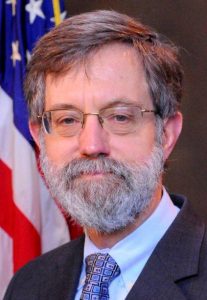The U.S. Supreme Court heard oral arguments April 22 in a case that could decide if homeless people can continue to be fined or jailed for sleeping outdoors even when shelter space is unavailable.
Under review are rulings by the U.S. Ninth District Court of Appeals that punishing people for sleeping in public spaces violates the Constitution’s ban on cruel and unusual punishment.
The case originated in Grants Pass, Ore., a mountain community of 40,000 residents with only one homeless shelter. The city adopted ordinances forbidding camping and sleeping in parks, alleys or along streets. Violators can be fined from $295 to $1,295 and face 30 days in jail, depending on the number and severity of violations. The city later was sued by homeless individuals who had been prosecuted under the law.
The six conservative justices focused their comments and questions on the practical needs of communities struggling with rising homelessness.
During Monday’s hearing, it was clear conservatives and liberals on the court see the case of Grants Pass v. Johnson in significantly different ways.
The six conservative justices focused their comments and questions on the practical needs of communities struggling with rising homelessness and challenged attorneys representing the plaintiffs to explain if there is an end to the number of shelter beds cities should be required to provide.
“Municipalities have competing priorities,” Chief Justice John Roberts said. “What if there are lead pipes in the water? Do you build the homeless shelter, or do you take care of the lead pipes? What if there isn’t enough fire protection? Which one do you prioritize?”
Roberts articulated conservatives’ concerns about the involvement of federal courts in addressing the complicated issue of homelessness and its effects on local communities: “Why would you think these nine people are the best people to judge and weigh those policy judgments?”
Liberal justices, however, expressed concern that legislation claiming to focus on sleeping outdoors is actually an effort to criminalize the status of being homeless.
“It seems both cruel and unusual to punish people for acts that constitute basic human needs,” Justice Ketanji Brown Jackson said. “Here, we’re talking about sleeping that is universal, that is a basic function.”
Grants Pass has been prosecuting one group of people for sleeping, while exempting another, Jackson added. “What we have happening in operation is that people who are able to afford doing this thing that’s a basic human need privately are OK. They’re not punished for it. But people who don’t have any other option or opportunity, except to do it in public, are the ones who are being targeted by this statute.”

Theane Evangelis
Theane Evangelis, the attorney representing Grants Pass, responded that the city’s police are directed to exercise discretion before issuing citations under the legislation, which she said is meant to keep homeless people safe.
“There is harm in simply camping,” Evangelis said. “Whatever materials people are using when they are living in public spaces without plumbing and infrastructure, there’s harm to the whole city and to the whole community, as well as to them. We know that encampments and these conditions also breed crime and very dangerous conditions. The city has an interest in protecting everyone.”

Kelsi B. Corkran
The Supreme Court’s 1962 Robinson v. California ruling should be applied in the Grants Pass case, said Kelsi B. Corkran, attorney for the homeless plaintiffs. Robinson declared that making it a crime to be a drug addict violated the Eighth Amendment’s ban on cruel and unusual punishment.
“Although the city describes its ordinances as punishing camping on public property, it defines campsite as any place a homeless person is while covered with a blanket,” she noted. “The city interprets and applies the ordinances to permit non-homeless people to rest on blankets in public parks, while a homeless person who does the same thing breaks the law.”
The city’s homeless laws make it essentially impossible to be homeless in Grants Pass without suffering constant fines and incarceration, she said. “The only question under Robinson is whether there’s any meaningful difference between a law that says being homeless is punishable and a law that says being homeless while breathing or sleeping or blinking is punishable.”
Justice Neil Gorsuch pushed back, asking if Robinson should also prohibit municipalities from outlawing outdoor defecation and urination when public restrooms are unavailable.

Edwin Kneedler
“We’re not suggesting that public urination and defecation laws cannot be enforced because there are very substantial public health reasons for that,” said Edwin Kneeler, U.S. deputy solicitor general.
In her rebuttal, Evangelis urged the justices not to extend Robinson to the Grants Pass situation because it involves low-level fines and would interfere with the cities’ ability to address important local challenges.
“When the Ninth Circuit constitutionalized this area, it left cities with really no choice, either keep building enough shelter that may or may not be adequate or suitable to someone’s preferences or be forced to give up all of your public spaces,” she said.
According to the National Coalition to End Homelessness, the 421,392 people counted as homeless in the U.S. last year is a record high. Of that number, 127,768 are considered chronically homeless. The agency said homelessness has been on the rise since 2017, experiencing an overall increase of 6% last year alone.
Three leaders of national efforts to address homelessness wrote an opinion piece saying the Grants Pass case is about whether cities can run off homeless people they find undesirable.
“Instead of converting unused spaces into housing, addressing high rents that push people out of their homes, and giving people the services they need to be healthy, Grants Pass officials have chosen to fine people $375 for sleeping outside. The citation jumps to $540 when the person inevitably can’t pay and quickly spirals into the thousands of dollars,” wrote Ann Oliva, CEO of the National Alliance to End Homelessness; Diane Yentel, CEO of the National Low Income Housing Coalition President; and Peggy Bailey, vice president for housing and income security of the Center on Budget and Policy Priorities.
“In one instance, Grants Pass levied $6,000 in fines and tickets to resident Helen Cruz when she could no longer afford her apartment and had to live on the street. City officials have made it clear their goal is not to solve homelessness, but to make life so much harder for people who sleep on the streets that they will go elsewhere.
“This misguided approach is more about removing people from view than fulfilling leaders’ duty to all of their citizens — housed and unhoused. And worse, it perpetuates a cycle of homelessness and despair that makes the problem harder to solve.”
A decision in the Supreme Court case is not expected until summer, however the ruling could have sweeping effect on the unhoused across the nation.


